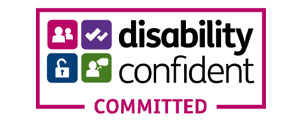2020 and the rise of the wholehearted Board
The longer–term implications on boards of 2020 will not only affect the way they operate in future, but also how they are built and how they are led. Both the Covid-19 crisis and the Black Lives Matter movement have shone a light brightly on some longstanding issues that many suspected were already there. The transition from the pandemic now forces positive change and growth. While governance structures, and trustee selection and utilisation, are ripe for review, for some boards the events of 2020 have already led to a much more fundamental look at the board’s role and capability. Here, thedevelopment of those teams is perhaps based on a realisation that experience and skills alone are not enough to govern well. Instead, resilient, sustainable boards require people who bring their whole selves to the board room to participate: diversity in its truest sense.
Perhaps the four biggest questions boards are now asking themselves are:
- Are we still relevant? Even for boards that have previously championed inclusion and diversity, this remains a massive question. In order to govern their organisations effectively, and to have rich and rounded debate, boards must be able to reflect the experiences and perspectives of their audiences and client groups. Inclusive and balanced boards with diversity that reaches through and beyond the most talked about or visible protected characteristics is essential. Painting by numbers on a board is not enough: boards that move with confidence into the future will be diverse in a three-dimensional way – their background, their experiences and their engagement. They will be supported by a board culture that sets the conditions for true diversity to flourish and reach its potential in terms of creativity, insight, ‘connectedness’ and challenge power.
- Are we still talking about the right things? One of the mistakes many boards make lies in forgetting to take a step back and review whether they too need to change in line with the executive they are overseeing. Executive leaders are looking to their boards more than ever before to support them in navigating uncertainty, and to help them innovate and seize opportunity in a challenging transition phase. Boards are exposed and their organisations vulnerable if they are unable to provide the right gauge of leadership at the right moment. Boards that have come through Covid successfully have been adaptable as a team and as individuals, able to assess quickly the implications of environmental factors on service users and audiences, and have had the visibility they need across huge swathes of the operating environment to make connections.
- What does this mean for our people? Boards are rightly asking themselves whether they are still equipped with the right skills, experiences and perspectives. Plans for board succession may now change radically, or be further defined in a way that takes a broader range of qualities, values and attributes into account. Subject matter expertise,capacity to support and scrutinise in key areas (such as data or legal, people and finance) and leverage and influence will still be valued by boards to a greater or lesser degree. However, the broader life experiences that have until now been viewed as somehow separate to professional value will gain in importance, with the rise of a new and more rounded view of what it means to be an effective board member.
- Who are we choosing to walk forward with? A time of crisis, of review and then of consolidation will emphasise the importance of friendships and alliances. This is a time to think laterally about those partnerships that will count in delivering impact. There is no doubt that the events of 2020 have been a catalyst for new conversations; while competition for resource will intensify, there is a major opportunity to break down unhelpful barriers between organisations where they share common goals. Now is the time when finding willing partners and embracing innovation and creativity together can be more valuable than ever – and more fulfilling.
While pre-2020 many boards have looked great on paper and felt good in practice, there is now an unrivalled opportunity to move to a new way of being. After all, a year of tough decisions, of unprecedented demand on time and potential, must mean something positive in the end. It is precisely this challenge that the spirit of many trustees and their chairs was always meant for.
www.starfishsearch.com
Starfish Search. Leadership journeys, expertly navigated.
Expert Interim Talent: How to Launch Your Portfolio Career
Today's business landscape demands agility and specialised expertise. Discover how to leverage your skills across diverse, high-impact projects, gaining unprecedented flexibility and autonomy. Forget "holding the fort", modern interims are strategic leaders, driving change and delivering results in times of transformation.
Recruiting leaders in perilous times
Leadership appointments have always carried weight, but in the current climate they carry a different kind of exposure. For those of us working at the interface between Boards and candidates, it is clear that the rules of engagement have shifted, and that executive search must shift with them.
In praise of Gen Z
I surveyed my multi-generational team on what they wanted from work. Here's what I learned.
ACCREDITATIONS


ESPO is a public sector owned professional buying organisation (PBO), specialising in providing a wide range of goods and services to the public sector for over 40 years. Starfish Search has been awarded a place on ESPO’s Strategic HR Services framework (3S). Services we offer under the framework include: Lot 1, Executive and Managerial Interim Recruitment Lot 2, Executive and Managerial Permanent Recruitment.


Starfish are proud to be certified Disability Confident Committed. This scheme provides employers with the knowledge, skills and confidence needed to attract, recruit, retain and develop disabled people in the workplace.


Crown Commercial Service supports the public sector to achieve maximum commercial value when procuring common goods and services. In 2020/21, CCS helped the public sector to achieve commercial benefits equal to £2.04bn - supporting world-class public services that offer best value for taxpayers. Starfish Search has been named as a supplier on Crown Commercial Service’s Executive and Non-Executive recruitment. Services we offer under the framework include: Lot 3 - Non-Executive and Public Appointments.


Bloom, launched in 2012 is the UK’s leading marketplace for professional services. They provide an end-to-end solution for the procurement, contract management and payment of all professional services, via the compliant NEPRO³ framework. Their public sector clients have access to 20 professional services categories and over 4500 accredited suppliers. Bloom provides swift routes to market via either direct award or mini competition. Starfish is an accredited supplier to BLOOM; our services can be accessed via this framework - Executive and Non-Executive Search and Interim Management.
Join the starfish team
We hire people who bring insight, integrity and ambition to their work. If you’re ready to contribute to shaping the future of leadership and you want to explore our current opportunities please click the link below.
find out more